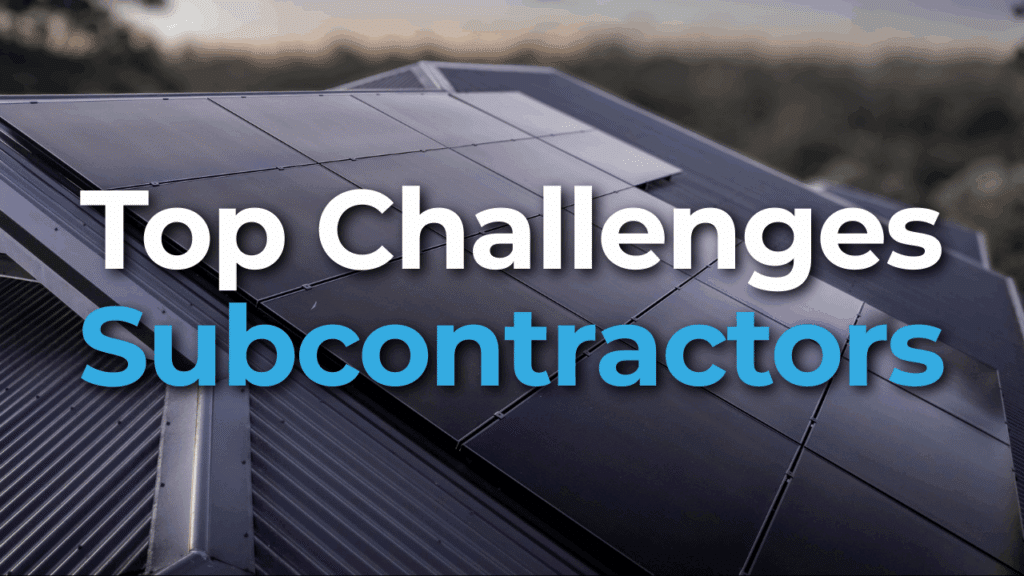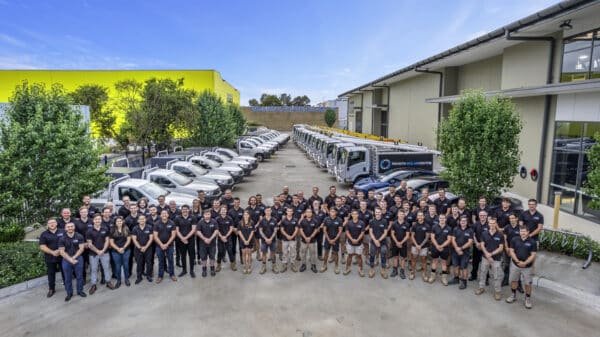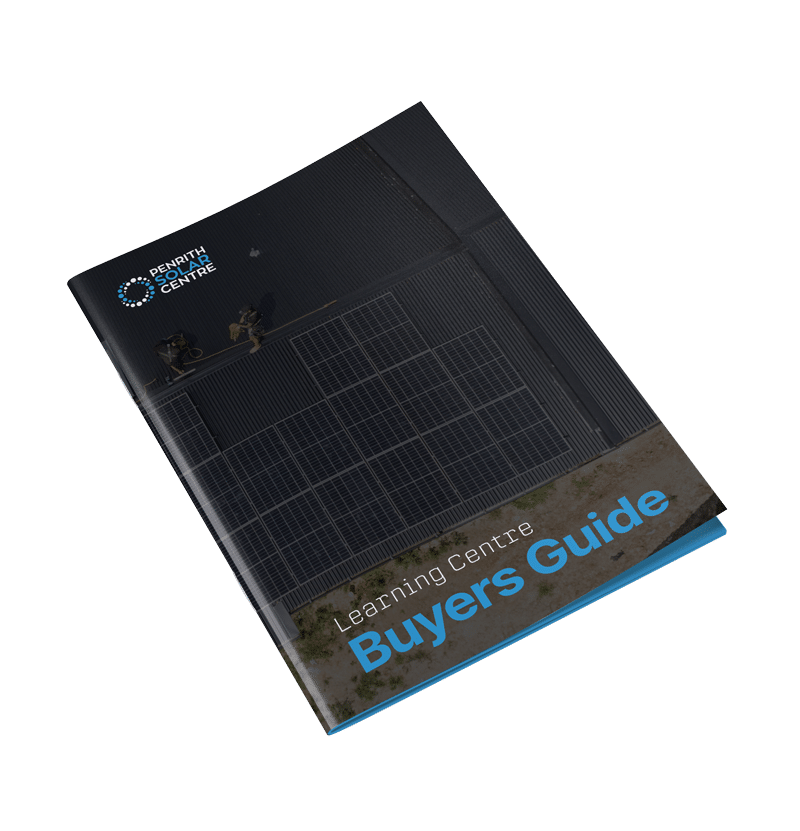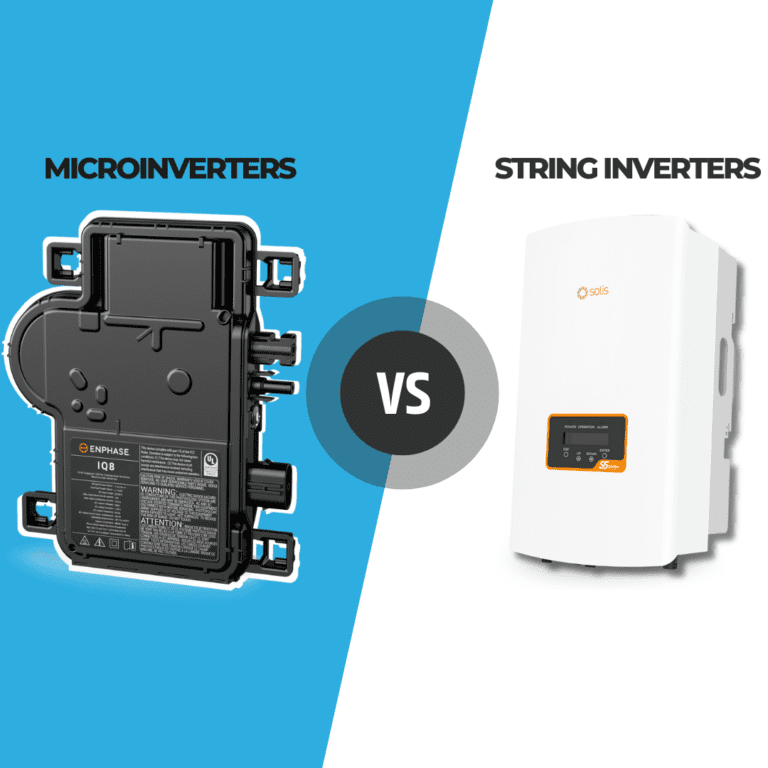
You might feel unsure about what to expect when getting solar panels. You’re spending thousands, and you want it done right. But when a salesperson explains the process, something they say makes you pause: “The install team won’t be from our company.”
Who exactly is going to be working on your roof?
At PSC Energy, we believe you deserve clear answers. We’ve worked in solar long enough to know what goes well (and what doesn’t) when subcontractors are involved.
Many solar companies use subcontractors to install your panels or handle the electrical work. That doesn’t mean something will go wrong, but it does mean you need to understand what could happen and how to protect yourself.
In this article, you’ll learn about the following:
- Do Solar Companies in Australia Commonly Use Subcontractors?
- Biggest Risks of Subcontractors in Solar Panel Installation
- What a Solar Subcontractor Could Mean for Your Home
- How To Protect Yourself If a Solar Company Uses Subcontractors
- Pros and Cons of Solar Companies Using Subcontractors
- FAQ: Hiring Subcontractors
By the end of this article, you’ll learn what subcontractors are, what problems to look out for, and what smart steps you can take before moving forward.
Do Solar Companies in Australia Commonly Use Subcontractors?
Yes, many solar companies use subcontractors. This is common in the industry. In most cases, the company that sells you the solar panels is not the same company that installs them.
There are a few reasons for this. Some solar companies focus only on sales and project design. They outsource the actual labour to subcontractors.
This helps them move faster and take on more customers. It also allows them to expand into more areas without hiring full-time crews in each location.
Subcontractors might handle different parts of the job. For example:
- A roofing subcontractor might mount the panels on your roof.
- An electrical subcontractor might connect your system to your home’s power supply.
- A general install team might do the panel placement and wiring.
This setup isn’t always a problem. In many cases, subcontractors do exceptional work. Many are experienced, well-trained, and know precisely what they’re doing.
The problem is you don’t always know what you’re getting. The quality depends on who the solar company hires, how well they manage the job, and how clearly everyone communicates.
This is why it helps to understand risks.
If you’re interested in learning a bit more about the importance of a good installer for your solar (the most important component of any system, seriously), you might want to check out the following article titled, In-house Installers vs. Subcontractors: Which is Better?
Biggest Risks of Subcontractors in Solar Panel Installation
When solar companies use subcontractors, things can still go smoothly. However, problems can happen if the company doesn’t manage them well. These are the most common challenges you should be aware of.
Inconsistent Quality
Subcontractors often work for many different solar companies. Some are excellent. Others rush through jobs or use shortcuts to save time.
You might get lucky with a great team, or you might get stuck with one that cuts corners. If a job isn’t done correctly, your system might not work as it should.
Lack of Accountability
When something goes wrong, it can be hard to get a straight answer. The solar company might say, “That was the subcontractor’s fault.” The subcontractor might blame the solar company.
In the end, you’re left in the middle, trying to figure out who is going to fix the issue.
Communication Breakdowns
You might sign a contract and speak to one company, but then a different team shows up on install day. If the communication between them isn’t clear, important details can get lost.
Confusion About Who to Contact
If something goes wrong after your system is installed, who do you call? The solar company or the subcontractor? Who will fulfil your warranty?
If they point fingers at each other, you could end up waiting days or weeks for someone to take responsibility. This becomes stressful fast, especially if your system stops working and you’re paying full price for electricity again.
If you’re interested in learning a bit more about working with a solar installer, you might want to check out the following article titled, Top Questions to Ask Your Solar Installer Before Hiring Them.
What a Solar Subcontractor Could Mean for Your Home
When subcontractors are involved, the impact often falls on you. Even minor issues behind the scenes can create significant problems in your customer experience.
Unexpected Costs or Unclear Responsibility
If your contract doesn’t clearly state who is responsible, you might end up covering the cost yourself.
If something goes wrong after installation (such as a panel stops working, your inverter fails, or there’s a leak where the panels were mounted), it may not be clear who will fix it.
You might call the solar company, but they could send you to the subcontractor. The subcontractor might not return your call or say the issue isn’t their fault. You could end up stuck with no quick solution.
This is why it’s essential to ask the right questions early and understand what to expect before signing any documents.
If you’re interested in learning a bit more about the importance of your roof type and how it affects your solar installation, you might want to check out the following article titled, How Does Your Roof Affect Your Installation?
How To Protect Yourself If a Solar Company Uses Subcontractors
Subcontractors are common in the solar industry, and using them doesn’t always mean you’ll encounter problems. But you can take a few smart steps to protect your home, your money, and your peace of mind. Here’s what to do before you sign a contract.
Ask If They Use Subcontractors
Start by asking the solar company directly: “Do you use subcontractors for installation or electrical work?” If they do, ask which parts of the job they outsource. A good company will answer you honestly. If they seem hesitant or avoid the question, that’s a red flag.
Check Reviews Carefully
Look at customer reviews on third-party sites. Search for comments about the installation process. If several people mention poor communication, delays, or problems with subcontractors, take that seriously.
If the company has a good system for managing its teams, you’ll see that reflected in the reviews.
Look For Companies That Provide Support After Installation
Ask how support works after the panels are installed. If something breaks, will the sales company help you? Or will they send you to a third party?
A good solar company will handle all service and warranty issues themselves, even if they used subcontractors for the installation.
Watch For Red Flags
Be careful if a company:
- Refuses to tell you who will be doing the work.
- Can’t explain how they check the quality of installs.
- Blames problems on “third parties” or “partners.”
- Doesn’t offer support unless you go through the subcontractor.
These signs suggest they may not take full ownership of your project.
If you’d like to learn more about that, we suggest you check out the following article titled, How Long Will My Solar Install Take?
Pros and Cons of Solar Companies Using Subcontractors
Pros
- Faster installations: Subcontractors can help expedite your system’s installation, especially during busy periods.
- Specialist skills: Some subcontractors bring expert knowledge in electrical or roofing work.
- Increased availability: Companies can take on more jobs in various areas by utilising local subcontracted teams.
- Lower costs: Subcontracting can reduce labour costs, which may keep your price lower.
Cons
- Inconsistent quality: Not all subcontractors work to the same standard.
- Poor communication: Messages can get lost between the solar company and the install team.
- Lack of accountability: You may not know who is responsible if something goes wrong.
- Delayed support: Fixing issues can take longer if the company doesn’t take full ownership.
If you’re interested in learning a bit more about what our team does, you might want to check out the following article titled, What to Expect on the Day of Your Solar Installation.
Final thoughts: Should a Subcontractor Install Your Solar System?
Subcontractors are not always a bad thing. Many skilled tradespeople work as subcontractors. Some companies use them to complete jobs more efficiently, reach a wider audience, or leverage specialised expertise.
If the solar company manages them well, the job can go smoothly.
The problem comes when companies use subcontractors but do not stay involved. If they pass the job off without checking the work or staying in touch, mistakes are likely to happen. That is when customers feel confused, frustrated, or ignored.
So do not be afraid of subcontractors. Instead, ask the right questions. That way, you can enjoy the benefits of solar with fewer risks and more peace of mind.
At PSC Energy, we believe every homeowner deserves honesty, clear communication, and high-quality work. We handle your project with our own team, staying involved and taking full responsibility from start to finish. It’s what we do.

If you’re interested in learning a bit more about our service department at PSC, you might want to check out the following article titled, Penrith Solar Centre’s Service Department Safeguards the Future of Your System.
FAQ: Hiring Subcontractors
What does it mean when a solar company uses subcontractors?
It means the company you sign with might not be the one actually performing the installation. They may hire another business or team to install the panels, do the wiring, or handle parts of the job.
Is it common for solar companies in Australia to use subcontractors?
Yes, it’s very common in Australia. Many solar companies use subcontractors to complete installations, especially when they are handling jobs in different areas or scaling their business.
Should I be worried if my solar installer uses subcontractors?
Not always, but you should ask questions. The risk comes when the company doesn’t manage their subcontractors well. Poor oversight can lead to delays, low-quality work, or confusion over who is responsible if something goes wrong.
What are the risks of having subcontractors install my solar panels?
Risks include poor workmanship, failed inspections, unclear responsibility for problems, delays, and communication breakdowns. These issues can affect your system’s performance and your peace of mind.
How can I tell if a solar company uses subcontractors?
Ask them directly.
What questions should I ask before signing with a solar company?
Ask if they use subcontractors, which parts of the job are subcontracted, how they check the quality of the work, and who you contact if there’s a problem after installation. Make sure the contract clearly outlines responsibilities and support.
Can a solar company still be reliable if it uses subcontractors?
Yes, they can. Good solar companies take full responsibility for your project, even if they use subcontractors. They stay involved, manage the process, and provide support to you after the job is complete.
What should I look out for in reviews about solar companies?
Look for mentions of delays, poor communication, damage to the home, or problems after installation. These may point to issues with subcontractors or poor project management.
What should I do if something goes wrong after installation?
Contact the solar company you signed with. A good company will help you, even if a subcontractor did the work.
Is it better to choose a solar company that doesn’t use subcontractors?
Not always. Some in-house teams do excellent work, and some subcontractors do as well. What matters most is how the company manages the job, communicates with you, and handles support after installation.











